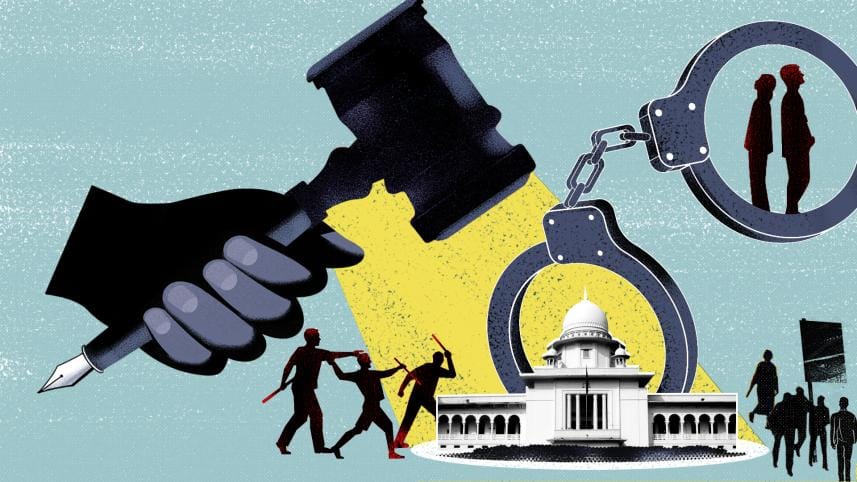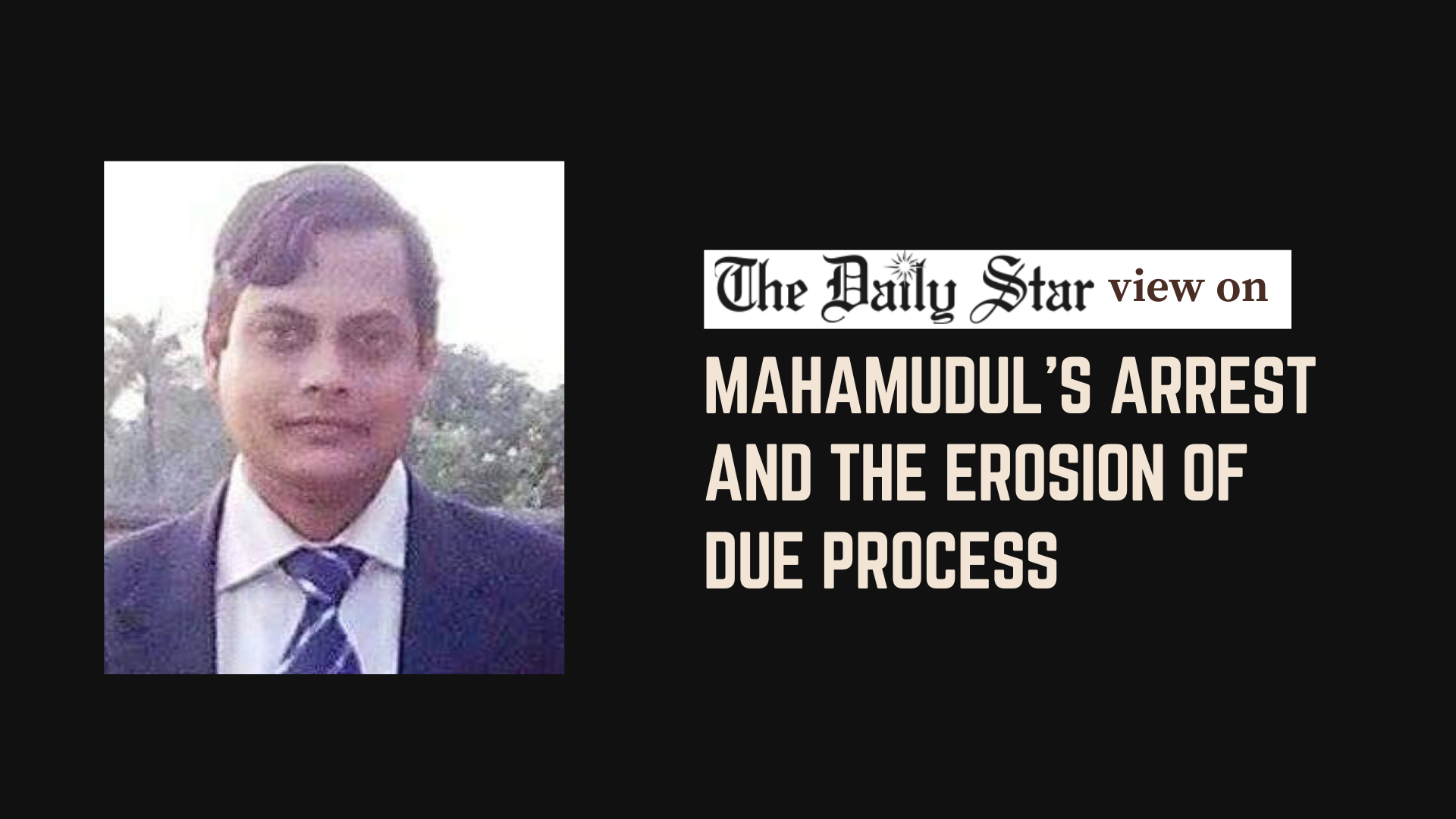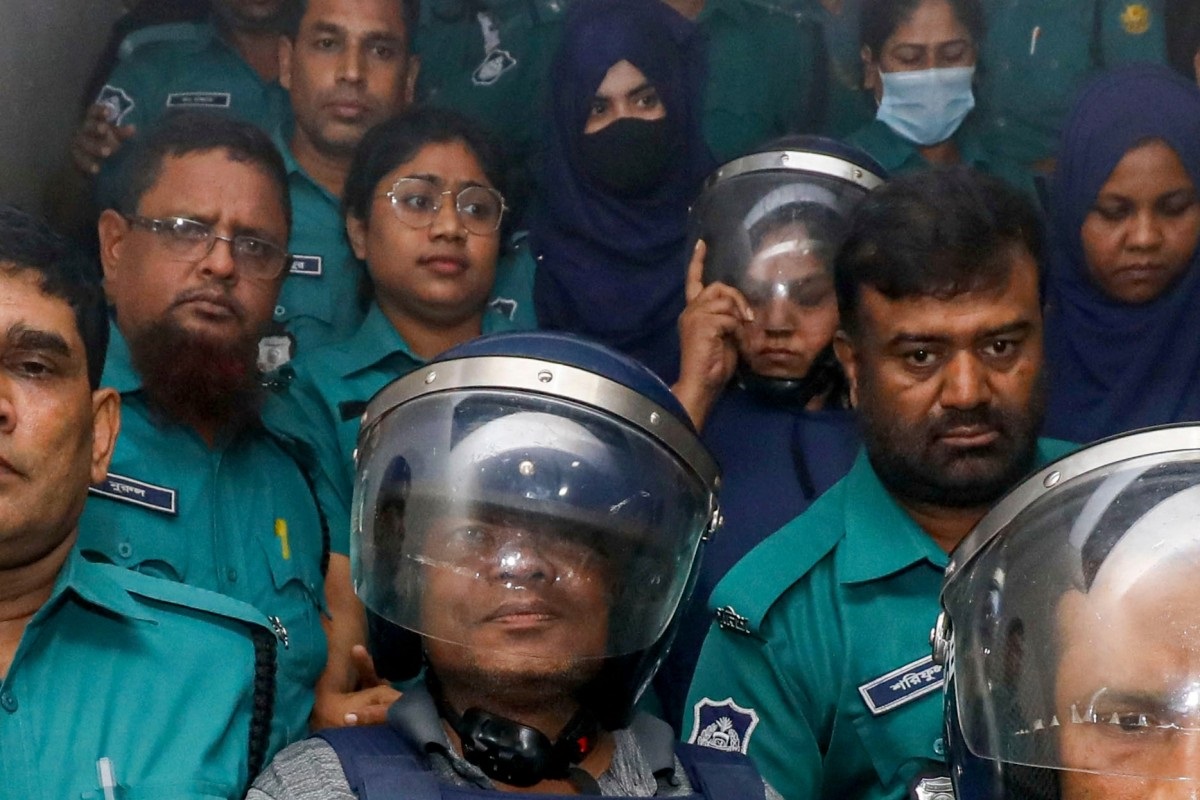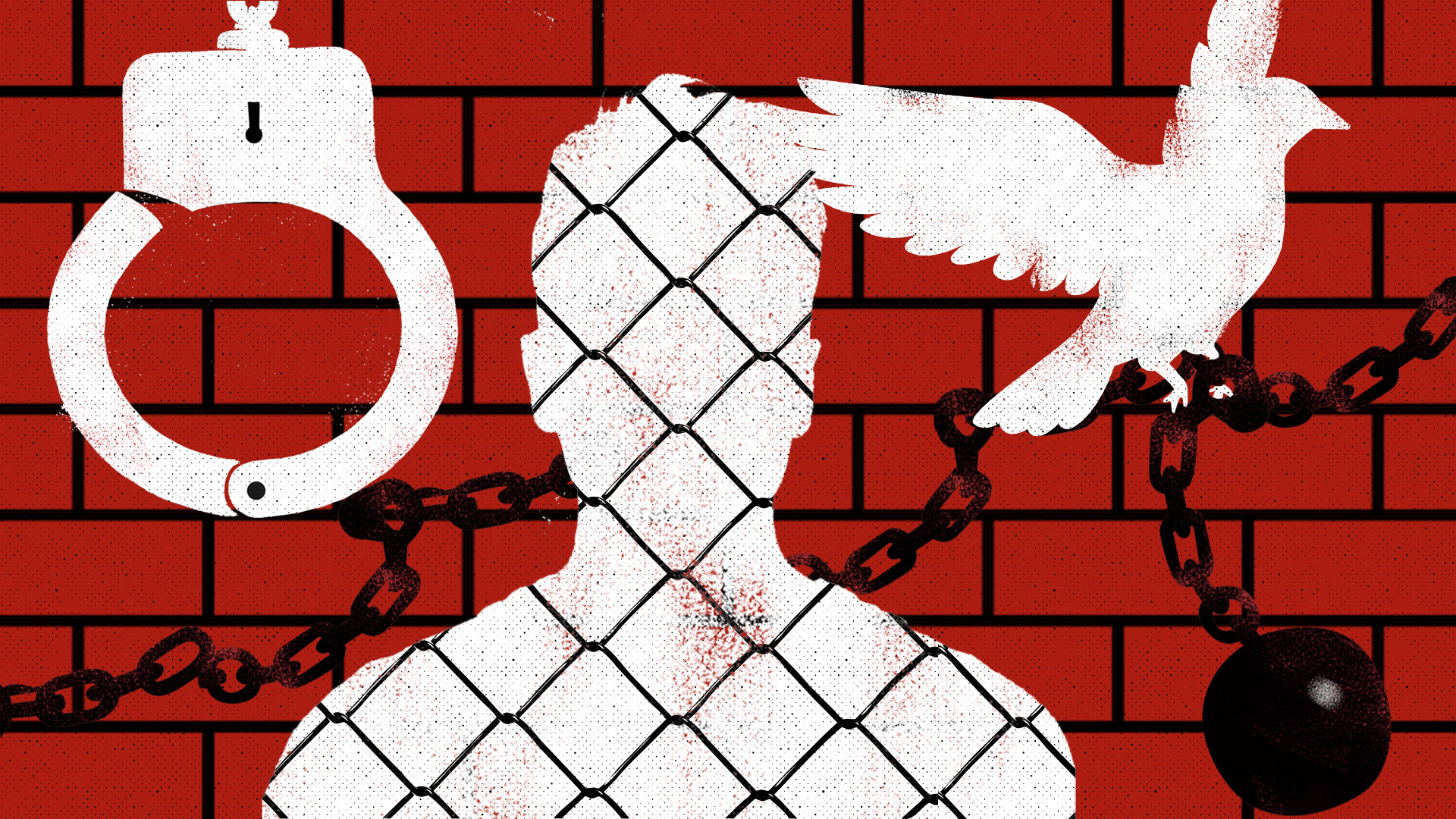Can justice be dispensed in an unjust manner?

When judges give preference to the letter of the law and ignore the spirit of the law, they, knowingly or unknowingly, violate the law's main purpose, which is to serve justice.
When we want changes in a hurry, we don't think much about the methods, hence the changes don't last. When we want to dispense justice in a big way but don't pay attention to legal details or the due process, then fairness, a precondition of justice, is not assured. When we want to punish culprits en masse but don't allow much scope for the accused's rights, it smacks of vengeance. This creates doubt about the credibility of the legal process and its outcome in the public mind.
We forget the age-old saying: "Justice must not only be done but also be seen to be done." The obligation is clear: in punishing all those who break the law, we cannot break the law. In holding abusers of power accountable, we cannot abuse power ourselves. The truth is, justice can never be established in an unjust manner.
We are currently witnessing a severe abuse of the law. Bring a few people together and create a mob, and you are above the law. Even the sight of people being beaten to death does not seem to nudge the government's conscience. Use some keywords to denigrate an institution or a person, and you don't have to bother about facts. People are being charged with murder, arrested, and kept in jail without trial or bail, in some cases for more than a year. Many of them were abusers of power under the past regime. There is plenty of evidence of their wrongdoings, yet there has been little progress with the investigation.
According to the Police Headquarters, as of August 6, 2025, a total of 1,730 cases have been filed related to the July uprising, including 731 murder cases. But as of September 2, charge sheets have been submitted in only 34 cases, including 13 murder cases. (We are not including cases filed with the ICT.)
So what happens to the rest? Why should they be forced to live under the ignominy of unproven crimes, especially when no investigation has been completed against most of them?
The government is also aware that a business of extortion has evolved centring the filing of false cases and then deleting names upon payment. What is further distressing is that all the relevant ministries, especially home and law, are aware that cases are being filed based on personal hatred, family conflicts, financial disputes, and political rivalries.
If a political party with wind in its sail decides to punish political rivals belonging to a party now discredited, then false cases pile up at lightning speed, and no one in power is ever bothered about it. Harassing and discrediting a possible rival in the coming election is also a factor.
Since there is no punishment for registering false charges—on the contrary, it has become an excuse for making money—the phenomenon of filing dubious cases has acquired momentum, especially when the government's position is that anyone can file cases and "we cannot do anything about it." But had the government acted on the principle that filing false cases is a crime, and punished those who exploited the right to sue, the floodgates of harassment and extortion would not have opened, and law would not have been so shamefully, deliberately, and wilfully abused.
Perhaps today, compared to anywhere else in the world, we have the highest number of media professionals accused of murder and attempted murder. With a change in power, how did so many journalists become murderers overnight? As a lifelong journalist, I find it a matter of great shame and humiliation. Yes, most of them have not been arrested, but many of them have lost their jobs, their social standing, along with their reputation.
An investigation by The Daily Star revealed that till May 3, 2025, at least 266 journalists have been implicated in various cases connected with the July-August uprising. At least 14 journalists have been arrested. Of those accused, at least 137 have been implicated in 32 cases (between August 21, 2024 and April 20, 2025) filed in Dhaka, Chattogram, Bogura and Rajshahi. According to case documents, they have been charged with murder, attempted murder, rioting, abduction, vandalism, extortion, assault, and unlawful assembly. Cases have also been filed under the Explosive Substances Act. Why terrorism has been left out is a wonder.
Perhaps today, compared to anywhere else in the world, we have the highest number of media professionals accused of murder and attempted murder. With a change in power, how did so many journalists become murderers overnight? As a lifelong journalist, I find it a matter of great shame and humiliation. Yes, most of them have not been arrested, but many of them have lost their jobs, their social standing, along with their reputation.
And what about those in jail? They have consistently been denied bail. Why? Isn't bail a right under the constitution? There is one female journalist, Farzana Rupa, who has been in jail for more than a year, without any charge framed against her. Why is she being denied bail? Given both the Bangalee and Muslim cultures, the role of a woman in the family and especially in raising children is supreme. Shouldn't this be a factor in considering her bail, particularly when no evidence has been found against her yet? There is also a specific provision of law to grant bail to women and people with disabilities. These are violations of the very basic human rights to restore which people ousted the last government.
After nearly a year of humiliation for those falsely charged, on September 9, the government thankfully formed committees at the district and metropolitan levels in an attempt to identify and discharge individuals falsely implicated in cases related to last year's mass uprising. We welcome this step but urge that a timeline be set to discharge these cases promptly, otherwise nothing much will come out of this good step.
I will be the first to admit that due to politicisation of journalism, many lost objectivity and honesty as they indulged in shameless sycophancy that not only discredited our profession but also made it easy for oppression, forced disappearance, extrajudicial killing, and suppression of dissent to continue. Except for a few, newspapers and electronic media houses created a shameful record. Many journalists sold their conscience for benefits and privileges and indulged in corruption, thus denigrating the profession. These so-called journalists should be exposed, charged with appropriate crimes, given a fair trial, and sentenced as the law determines. But to accuse them of murder or attempted murder shows how the government itself trivialises the law. This actually creates cover for the real culprits.
There are many other instances of politicians and former parliamentarians who are in custody for nearly a year or even more. Some of them are in their late 70s and early 80s, and are suffering from ailments that may cause fatal outcomes. There is no progress in the investigation of their cases, yet their bail petitions are constantly being rejected.
Denial of bails was one of the distinct horror stories from the past regime. We wrote many times about the arrests of Mirza Fakhrul Islam Alamgir, Amir Khosru, and many others, and protested the denial of their bails for months and even years. Writer Mushtaq Ahmed was detained along with cartoonist Ahmed Kabir Kishore in May 2020 for satirical Facebook posts and a cartoon criticising the then government for its handling of the Covid pandemic. Mushtaq died in jail in February 2021 due to indescribable torture. He was denied bail six times by different judges, including a High Court judge. Shouldn't these judges bear some responsibility? They all lacked that crucial ethical commitment that is required of a judge. If one had granted him bail—to which the victim had every right—his death would have definitely been averted. They were not judges but carriers of the government's diktat.
So why is the judiciary still denying bails and not showing independence that we, at least now, expect from it? The police have the responsibility to arrest, but how long a person will be in jail is determined by the judge, including whether he or she should be placed on remand which, as we know, is nothing but a permission for torture. In the past, we saw a judiciary eager to serve the executive branch. Why is that trend being repeated now with the same zeal, loyalty, and disregard for the law, which they are in charge of upholding?
The independence of the judiciary, envisioned in our constitution and denied by governments over the decades, appears to be finally coming. We want to celebrate that by seeing, immediately, a change in the mindset and strengthening of the spine of the judges themselves, who should not only follow the letter of the law but also the spirit of the law, which encapsulates rights, freedom, fairness and justice.
Bail denial was like the second nature of our judges before. Unfortunately, we see no sign of that changing. It seems there is no sufficient respect for the fact that no one has the right to deprive a citizen of even one hour of liberty without lawful process. Whenever a judge denies bail, his or her conscience should bear the heavy burden of depriving a citizen of freedom, liberty, and right to normal life.
The judiciary's excuse is, if the offence is non-bailable, how can a judge grant bail to the accused? Well, here comes the question of fairness as well as discretion. Shouldn't a judge examine whether the correct law is being applied? Can't the judge ask about the rationale for a murder charge? How can one murder have several hundreds of participants? Can't the judge ask for proof about the presence of a particular accused seeking bail on the scene of crime? The judge can deny bail for a day or two and ask the police to provide prima facie evidence, and in its absence, can use his or her discretion and grant bail. The highest role of a judge is to dispense justice.
The independence of the judiciary, envisioned in our constitution and denied by governments over the decades, appears to be finally coming. We want to celebrate that by seeing, immediately, a change in the mindset and strengthening of the spine of the judges themselves, who should not only follow the letter of the law but also the spirit of the law, which encapsulates rights, freedom, fairness and justice.
A judge cannot be a legal bureaucrat. They have to be highly moral, gutsy, and fearless defenders of the law and the constitution. We want to see judgments that shake the very foundation of fascist and autocratic governments. We want to see pronouncements by judges that strengthen democratic norms and practices and nip in the bud any attempts by legislative majorities to shrink the space of dissent. We don't want to see clever manipulation of a sentence here, or a clause there, that will dilute our rights. Our judges must have the moral responsibility to strengthen our unwavering faith in the law. They must be fully aware that their past practices have lowered public faith in the noble edifice we call the judiciary. We must never forget for a moment that rule of law must be practised in its totality, and not through convenient segments.
We end by repeating what we started with: justice can never be dispensed in an unjust manner.
Mahfuz Anam is the editor and publisher of The Daily Star.
Follow The Daily Star Opinion on Facebook for the latest opinions, commentaries and analyses by experts and professionals. To contribute your article or letter to The Daily Star Opinion, see our guidelines for submission.




 For all latest news, follow The Daily Star's Google News channel.
For all latest news, follow The Daily Star's Google News channel. 




Comments